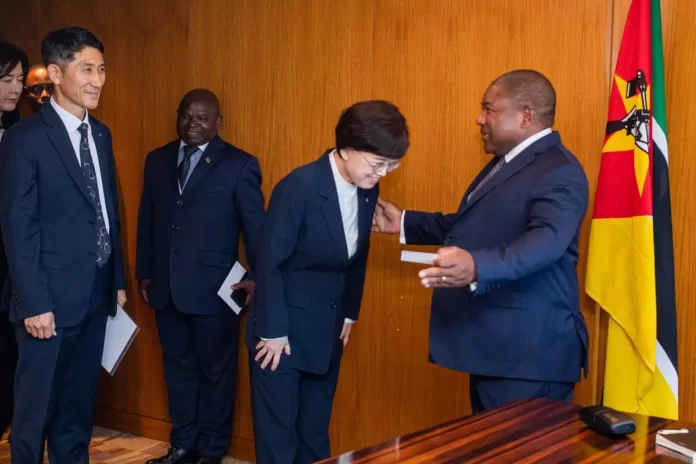The Chairwoman of the Board of Directors of South Korean oil company Kogas, Yeon-Hye Choi, expressed her commitment to continue investing in the liquefied natural gas (LNG) exploration and production project underway in Area 4 of the Rovuma basin, in Cabo Delgado province, northern Mozambique.
Speaking after a meeting with the head of state, Filipe Nyusi, in Seoul, the capital of South Korea, she said that the region where the project is located is stable in terms of security, adding that they had a “very fruitful” interaction, during which both parties shared a great vision for the future.
The Deputy Minister for Mineral Resources and Energy, António Saíde, who also took part in the meeting, explained that the parties assessed the progress of the projects in Area 4 and conveyed very clearly what had been done in the area of security in the region where Kogas is a partner.
“Kogas said it was confident in the Mozambican market because it can contribute to energy stability worldwide, which is why they are going to continue with this natural gas project,” he said.
The official said that the parties also discussed the development of the piped natural gas distribution project in the cities of Matola and Maputo and, in this context, reiterated their commitment to continue working with the National Hydrocarbons Company (ENH).
“What was planned for domestic plumbing was around 500 connections, but around 350 have already been made, and we want to believe that the rest can be made in the near future,” he said.
In terms of large consumers, Saíde mentioned the existence of 30 industries connected to the natural gas distribution network, stressing that “the government has introduced a new paradigm for the use of piped natural gas, which consists of providing natural gas in the design of future infrastructures and cities that the country is going to develop, to ensure that these projects are incorporated”.
Kogas is a partner in Area 4 of the Rovuma basin, operated by Mozambique Rovuma Venture (MRV), in co-ownership with ExxonMobil, Eni and CNPC (China), which holds a 70% stake in the concession contract. Kogas, Galp and Empresa Nacional de Hidrocarbonetos each hold a 10% stake.




